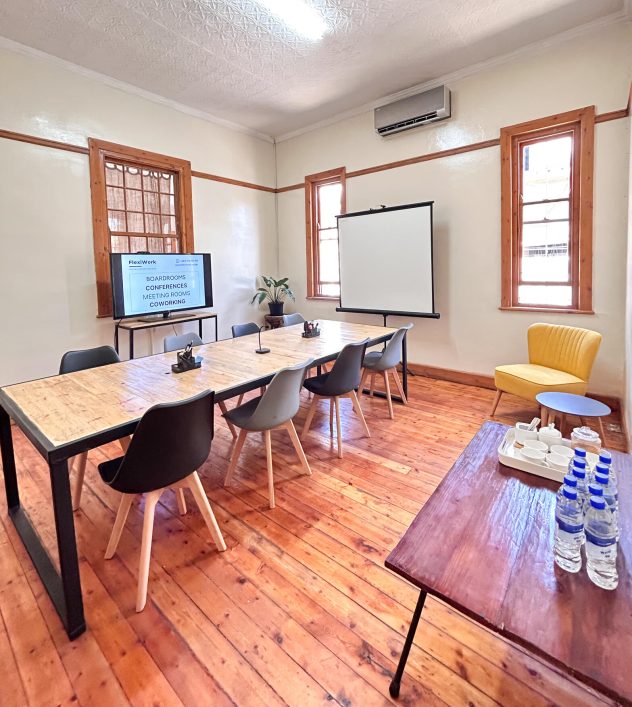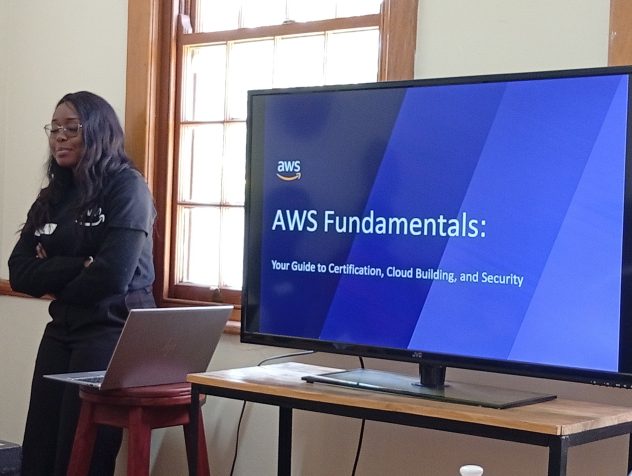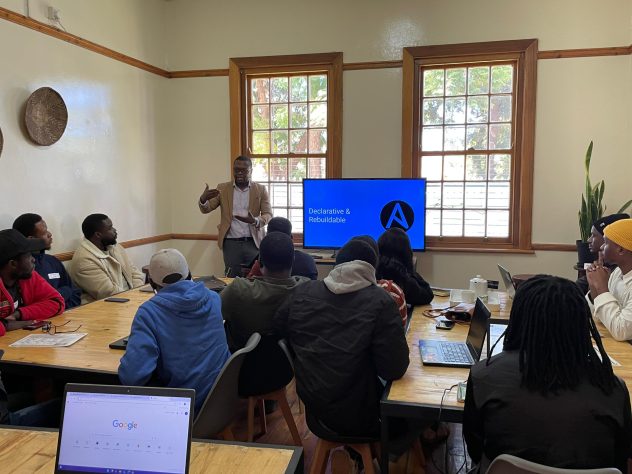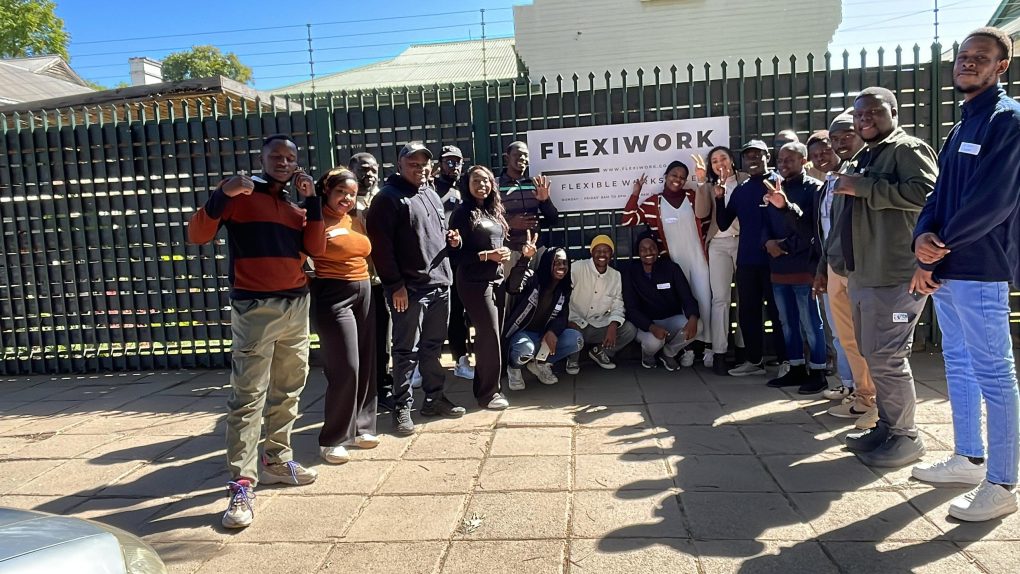On Saturday, May 24, I attended an AWS meetup at FlexiWork. The meetup was three hours long, we networked and listed to talks with hands-on tips for AWS practitioners.
Here’s how it went down.
The venue: FlexiWork, a relaxed, coworking space
The event was hosted at FlexiWork, a beautiful co-working space in Bulawayo with secure parking, art along the hallways and a quiet garden just outside. Around 20 people attended the meetup, ranging from bootcamp students to working professionals.
Tiffany, the FlexiWork Operations Manager, started us off with a quick tour of the venue and an icebreaker session to introduce ourselves. FlexiWork offered doughnuts, coffee and other treats. We settled in with Wi-Fi and got ready for the talks at around 11AM.


Hildah Machando — AWS Fundamentals: Your Guide to Certification, Cloud Building, and Security

Hildah, a 3x AWS and CISA certified security specialist opened the session with a beginner-friendly introduction to AWS. She covered:
- Certification paths and AWS job prospects
- Tips on passing certification exams, including costs and resources to prep for them
- How to set up your first AWS account. This included steps on creating groups, roles and IAM policies.
- She broke down how EC2 works; covering the different types of instances, and strategies for using the free tier wisely e.g stopping and terminating instances after completing learning sessions to avoid incurring high bills.
- An explanation of Shared Responsibility, including
- What AWS manages for you (instance patching, licensing)
- What you’re responsible for (security configurations, updates etc)
The talk was practical and gave new users a clear path to start experimenting with AWS.
My Talk — Cloud Skills, No Cloud Required

I gave a talk titled “Cloud Skills, No Cloud Required”, where I shared how I built my own “cloud” using local hardware combined with AWS services. You can find the slides from my presentation on speakerdeck.
I walked through:
- Why I started a homelab — to learn by doing, keep costs low and to prove that it’s possible
- What software powers it: containers (Kubernetes), backups, monitoring, declarative tools like Ansible and CloudFormation
- AWS services I use within the homelab:
- S3 for backups
- Route 53 for DNS and subdomains
- SSM Parameter Store for secure credentials storage
- IAM for access control and policy enforcement
- SES to send alerts when backups fail
I also mentioned the cloud-native principles I follow, even in a homelab such as:
- Rebuildability: everything is declarative in YAML and version controlled in git
- Security-first: credentials aren’t hardcoded and backups are stored securely
- Monitoring and alerts: so I know when things go wrong
- Low cost: I use low cost hardware and low-cost/free services from AWS
I recommend a hybrid approach like this if you’re learning AWS, cloud engineering or DevOps but can’t afford to run full workloads in the cloud, it’s helped me gain real-world experience without the real-world bill.
Conversations I Had
One of the highlights of the day was connecting with students from the Uncommon bootcamp. Their enthusiasm for learning how code works, from variables to full applications reminded me of myself many years ago when I was a bootcamp student at Muzinda Hub.
I shared advice with them on breaking into tech via open source. We talked about programs like Google Summer of Code, Outreachy, Summer of Docs and other internship opportunities.
Another great moment was chatting with Tapiwa Kanda from the AWS Zimbabwe community. We kicked around the idea of launching an AWS User group in Bulawayo. The group would be a place for local builders to collaborate, share and grow together. I’m looking forward to see where that leads.
Takeaways
I few things that stuck with me during the event:
- Email is deceptively hard to self-host. Somone asked why I don’t run my own mail server. We discussed the challenges; IP reputation problems, getting emails marked as spam, setting DNS records up and keeping the server secure. It sounds like a pain, but now I want to try it. I’m thinking of it as an interesting technical puzzle.
- There’s a hunger for tech. Whether it’s bootcamp students or hobbyists, people are eager to learn more, build real things and use tech to its full potential.
What’s Next
After the event, and thinking about the discussions I had, I plan to experiment with self-hosted email to see how far I can push it. I also want to follow up with Tapiwa about starting an AWS User Group in Bulawayo.
If you’re interested in homelabs, AWS or setting up cloud-native systems on a budget, reach out to me to ask questions. And if you’ve never been to a tech event, go. You’ll meet interesting new people, make lasting connections and leave with more than just knowledge.
